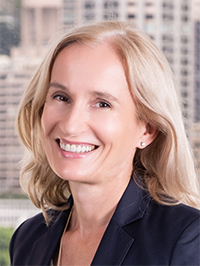Hong Kong consults on listing rule and CG Code changes
by Jane Moir, ACGA
The market plans a raft of upgrades, including a hard cap of nine years on INED tenure, a limit of six directorships for independents, and a woman on the nomination committee, writes ACGA Head of Research Jane Moir
Hong Kong’s stock exchange will impose a nine-year limit on INED tenure, cap overboarding of independents at six directorships and require nomination committees to have at least one female director under proposed changes to the listing rules and CG Code.
In a consultation released on 14 June, Hong Kong Exchanges and Clearing is also proposing to upgrade disclosure of a dividend policy as a mandatory requirement and will encourage issuers to designate lead INEDs where there is no independent chair. Directors would also have to undergo mandatory training.
Market views are being sought on the planned changes, with the INED hard cap and overboarding likely to be contentious following significant pushback from issuers in the past. The new rules would come into effect from 1 January 2025, with a three-year transition for the overboarding and INED tenure proposals. The consultation runs until 16 August 2024.
The move to appoint a woman to the nomination committee would set a new bar across the region. ACGA has advocated for women to sit on NCs to attract more women to serve as directors: our research showed that statistically having a female chair of the NC led to a higher rate of female directors.
Under the revision to the listing rules and CG Code there would be:
- A nine-year hard cap on INED tenure with a three-year transition period, making the listing rule effective from 1 January 2028. Long tenured INEDs could be a NED after this. Long serving INEDS would be allowed to serve again as INED on board of same issuer after a two-year cooling off period. As of the end of December 2023 there were 1500 directorships held by long serving INEDs at 810 issuers, representing around 31% of all companies. There are 30 issuers where all INEDs are long serving.
- A new listing rule imposing a hard cap on overboarding: an INED must not concurrently hold more than SIX listed company directorships. There would be a three-year transition, with the rule coming into effect from 1 January 2028. The current CG code states that when director hits seven appointments the issuer must state why the board believes the individual can still devote sufficient time to the company. As of the end of December 2023 there were 23 overboarding INEDs at 181 issuers, representing around 7% of all issuers. There were five overboarding INEDs holding ten or more issuer directorships. IPO applicants filing on or after January 2025 would not be accepted for listing with more than six overboarding INEDs.
- A CG Code provision requiring companies to have at least one director of a different gender on the Nomination Committee.
- A new listing rule would require mandatory director training annually on specified topics. First-time directors would undergo a minimum 24 training hours within 18 months of their appointment.
- Upgrade the current recommended best practice to a CG Code provision that there be a board performance review to be conducted at least every two years on a comply or explain basis, following the UK, Singapore and Australia. The review would consider the board, rather than individual directors.
- A CG Code provision requiring a board skills matrix with enhanced disclosure on the current mix of skills and further ones they are looking for. Issuers should refrain from simply listing out director qualifications and experience.
- A new mandatory disclosure rule that the Nomination Committee must annually assess and disclose its assessment of each director’s time commitment and contribution to the board.
- Upgrade the current CG Code provision to mandatory disclosure that companies disclose specific information on their dividend policy, or why they do not have one, as well as dividend decisions made by the board, in the CG report. Issuers should disclose why there has been any variation in dividend rates, and reasons for not paying a dividend.
Download File Disclaimer
In addition to the ACGA website disclaimer access to the "Members' Area" of the ACGA website is subject to the general disclaimer and content attribution statements below.
General Disclaimer
By logging into our Members' Area you acknowledge that all materials displayed on the site or made available for download are for the exclusive use of ACGA members. You may not share the content with parties outside of your organisation.
Content Attribution
The copyright ownership of all material on our website belongs to ACGA. Should you wish to use any materials in the course of your corporate research, including directly quoting or paraphrasing sections, reprinting, reproducing or the like, we request that you give proper acknowledgement to ACGA and share a copy with us. Please email irina@acga-asia.org.


 Jane Moir
Jane Moir